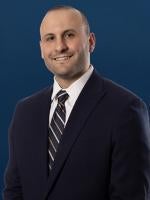Can a union be sued by management for destroying company property during a strike? On June 1, 2023, the U.S. Supreme Court answered the question in the affirmative.
Background
Glacier Northwest sells and delivers ready-mix concrete. Its truck drivers were represented by the International Brotherhood of Teamsters Local Union No. 174.
In 2017, contract negotiations broke down and the union called a strike. The union's call for a work stoppage came in the middle of the day while concrete was already being mixed and loaded into the ready-mix trucks. Once poured into the truck, there is a limited time window before the concrete will set and permanently damage the truck.
Although management was able to avoid significant damage to the trucks, the concrete that was mixed that day hardened and became useless.
Glacier Northwest sued the Union for intentional damage to property in Washington state court, and the union moved to dismiss the lawsuit, arguing it was preempted by the National Labor Relations Act (NLRA).
The Washington state court found for the union, holding that the state court claims were preempted by federal law under the longstanding Garmon doctrine. Under Garmon, state law claims are not allowed whenever the underlying conduct is "arguably protected or prohibited" by federal law.
The Supreme Court Decision
The Supreme Court reversed, finding that because the union knew a work stoppage could cause harm to the company’s product but did not take "reasonable precautions" to prevent the harm, its activity could not even "arguably" be protected by federal labor law.
While the Court’s specific ruling is narrow, it will make it easier to bring state tort claims against unions. This will allow some employers who are harmed by union conduct to seek a remedy in a venue other than the National Labor Relations Board (NLRB).
Key Takeaways
- The decision turns on the U.S. Supreme Court’s finding that the conduct at issue was unprotected by the National Labor Relations Act. It is unclear how far courts will go in finding conduct that does not involve property damage (e.g., libel or harassment claims) to be clearly unprotected and thus subject to suit under state law.
- Even after the decision, there are still open questions of when the union can be liable for member conduct, but the threat of civil tort liability and the costs of having to defend such claims may lead to more moderate behavior during labor disputes
- Employers who experience property damages or economic harm as a result of union or employee collective action now should consider whether to pursue remedies in state court versus the National Labor Relations Board. While not mutually exclusive, bringing a charge at the NLRB to preserve that claim may be cited in the state court action as support for preemption of the state court claim.






 />i
/>i

